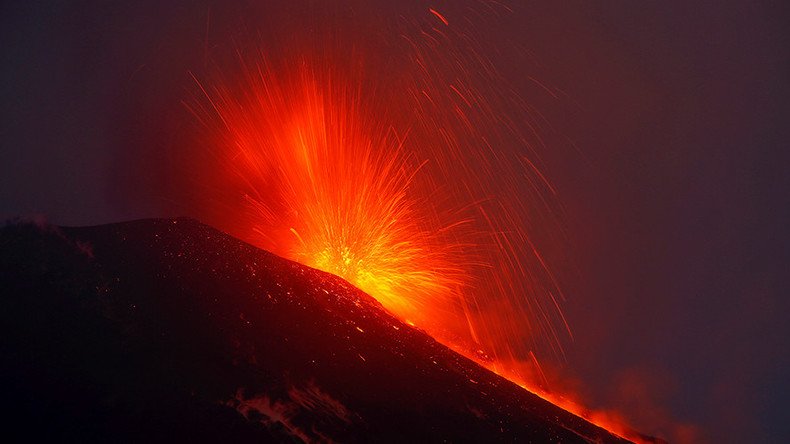Hot air or grave warning? Scientific report prompts talk of catastrophic ‘volcano season’

A volcanic eruption with the potential to “return humanity to a pre-civilization state” could happen within the next 80 years, according to a study by the European Science Foundation. Have we now heard the last argument in the debate the study triggered?
Authors of the Extreme Geohazards: Reducing the Disaster Risk and Increasing Resilience say the threat from low-probability, high impact disasters is being “grossly underestimated”.
Presented to the European Geosciences Union General Assembly last April, the study looks at the extreme impacts of natural hazards like earthquakes, tsunamis, extreme weather and volcanoes.
It states that “extreme volcanic eruptions pose a higher associated risk than all other natural hazards” including asteroid impacts.
But it’s the mention of a centuries old super volcano in Indonesia that has people questioning whether the world’s population is about to be annihilated in a cloud of ash and molten lava in the not too distant future.
The report appears to indicate there is 5-10 percent chance of large scale volcanic activity happening before the end of the century.
The probability is mentioned in a section on significant volcanic eruptions, like the Lake Toba eruption 74,000 years ago, and the 1815 Tambora eruptions during the current Holocene period.
It has led to numerous reports that the earth is in the midst of a volatile ‘volcano season’ – a ‘ticking time bomb’ period that could see supervolcanoes in places like Yellowstone National Park, Wyoming erupt and kill millions.
Yellowstone about to blow? Scientists warning over SUPER-VOLCANO that could ... - https://t.co/krXaIMWuwJ : https://t.co/3qTTqL3STA
— Volcano Alert (@VolcanoAlert) January 6, 2016Earth Is In Volcano Season: Supervolcano Eruption Could Occur Within 80 Years ... - Tech… https://t.co/oXGMDjOBO1
— AshCloudNEWS (@Volcano_NEWS) January 8, 2016However, there are questions over whether "volcano season" really exists outside the world of catchy headline writing.
While the geohazard study acknowledges large volcanic eruptions “have the potential to trigger global disaster and catastrophe”, ESF scientists make no mention of “volcano season” and only reference “supervolcanic” activity once in a table showing eruption classification.
There is also no specific prediction of Yellowstone blowing its lid.
#VolcanoSeason isn't a thing and we're 99.9% sure #Yellowstone won't erupt in next 80yrs https://t.co/McxvZrnuTf@Volcanologist@davidmpyle
— Hannah Osborne (@hannah__osborne) January 8, 2016Speaking to the International Business Times Rebecca Williams, volcanologist at the University of Hull said there is “no such thing” as "volcano season".
“There is no more volcanism at the moment than there is normally. Rather, there seems to be more interest in reporting small volcanic eruptions and a better-connected world means we know more about eruptions around the world.
“There has been talk about Yellowstone erupting and killing everyone but this is nonsense. There is no scientific data that suggest an eruption is likely to occur in the near future,” she said.
Volcanologist at the University of Oxford, David Pyle has echoed his colleagues response, saying the “jury is still ‘out’” on whether volcano season is real.
He suggested any supposed increase in eruptions is likely down to technology spotting previously undetected activity.












